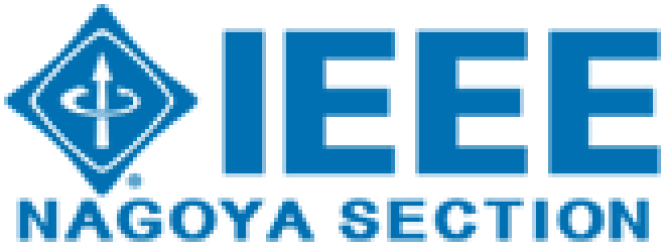日 時:2025年 4月18日(金)16:30~18:00
場 所:名古屋大学IB電子情報館中棟1階IB-014講義室
講 演 者:Abdallah “Abdo” El Ali 先生
(オランダ国立数学情報科学研究所(CWI)・研究員
/ユトレヒト大学・助教)
Monica Perusquia-Hernandez 先生
(奈良先端科学技術大学院大学・助教)
講演題目:Affective human augmentation
講演概要:本講演では,2名の講演者がaffective human augmentationについ
て,(1)Affective haptics for human augmentation:
Opportunities and risks(2)Virtually well: Enhancing
well-being through embodiment illusions の2つの話題を提供する.
それぞれの概要は以下の通りである:
(1)We are entering a digital wave where the user experience
is transforming through immersive, interactive, and
multi-sensory technologies. Advancements in haptics enable us
now to create artificial haptic sensations (thermal,
vibrotactile, pneumatic), which can potentially enhance our
physical and digital interactions. This however creates
unfamiliar human-human and human-machine interactions that
warrant further exploration. In this talk, I will focus mainly
on affective haptics, which are systems and devices that
utilize the sense of touch (haptics) to elicit, enhance, or
influence human emotional states. Through several research
prototypes, I will highlight the opportunities of (affective)
haptics for human augmentation across scenarios (e.g., news
watching, mediated social touch, avatar co-embodiment, …)
and accessibility use-cases (e.g., ASD, stroke rehabilitation,
…). I will conclude with a cautionary outlook using our
recent work on Dark Haptics as a case study, ultimately
emphasizing the need for designing *responsible* human-machine
interactions across the reality-virtuality continuum.
(2)Sustainable Development Goal 3 (SDG 3), “Good Health and
Well-being,” aims to ensure healthy lives and promote
well-being for all ages. Wellbeing refers to physical,
psychological, and eudaemonic dimensions of feeling well. In
this talk, I will show examples of how virtually manipulating
our physical and psychological states can increase our
well-being. In the physical dimension, manipulating visual
acuity aids in identifying eye vision problems with
Electrooculography. In the psychological dimension, changing
the body status can create the sensation of an enhanced
psychological self. This is exemplified by
Electromyography-enhanced Virtual Reality (VR) proteus
effects, the body’s thermal state manipulations, and
culturally tuned VR-based awe elicitation. Finally, eudaemonic
well-being demonstrates our inner potential, makes us feel
fulfilled and significant, and leads to an active life
connected to our surroundings and other people. I will present
an example of how interoceptive haptic feedback can be used to
care for a virtual pet while enhancing self-care and
self-compassion.
略 歴(El Ali先生)
Abdallah “Abdo” El Ali (https://abdoelali.com/) is a research
scientist at Centrum Wiskunde & Informatica, and part-time
Assistant Professor at Utrecht University. He leads the
research areas on Affective Interactive Systems and
Trustworthy Human-AI Interaction, where he combines advances
in sensing and actuation, eXtended Reality, and Artificial
Intelligence to augment human cognitive, affective, and social
interactions. He is also affiliated with the AI, Media, and
Democracy Lab, where he leads Human-AI Interaction research
focusing on AI transparency in media. He serves as Chair of
CHI Nederland (CHI NL), the ACM SIGCHI Netherlands Chapter. He
is currently a visiting JSPS Research Fellow at the CARE lab
at the Nara Institute of Science and Technology.
略 歴(Perusquia-Hernandez先生)
Monica Perusquia-Hernandez (https://www.monicaperusquia.com/)
is an assistant professor at the Nara Institute of Science and
Technology (NAIST), Japan, working in affective computing,
signal processing, and interoceptive awareness enhancement in
cyber-physical systems. Her work relies on Computer Vision,
EMG, EEG, ECG, and EDA for congruence estimation between
embodied expressions and emotions.
主 催:名古屋大学 大学院情報学研究科 知能システム学専攻
協 賛:IEEE名古屋支部(予定)
問合せ先:井手一郎(ide@i.nagoya-u.ac.jp)

